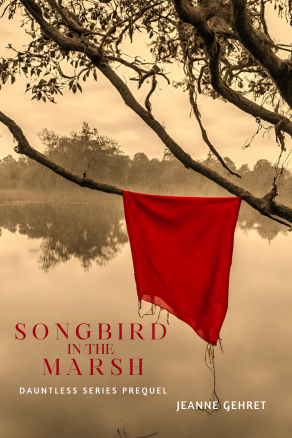Belated discovery about Fugitive Slave Act
This week I made a belated discovery about the Fugitive Slave Act of 1850–just what every Civil War-era author wants after publication! Frustrated that I didn’t see this earlier, I’m pondering how it would have changed my book.
Before we discuss that, I have two happy announcements:
 Book News:
Book News:Secrets to the Wind is now available in paperback. Buy it on Amazon here.
Story Collections:For Secrets to the Wind and other digital full-length books, look for introductory prices at “Travel the World with Great Literary & Historical Fiction Books.”
If you haven’t already read my prequel to Secrets to the Wind, you’ll find it listed as Songbird in the Marsh in these two different collections of short stories here and here.
And now for my belated discovery . . .
~~~
New information has surfaced about the Fugitive Slave Act of 1850 that propelled Susan B. Anthony’s family and their colleagues into campaigning to end slavery. Without it, they might have remained observant Quakers engaged in business, but the atrocities of slavery prodded them to join other appalled Northerners. Her awareness raised, Susan began comparing the marginalized state of women to that of people in bondage who lacked all human rights.
What the law said: The Fugitive Slave Act required ordinary citizens to help capture escaping slaves and return them to their former bondage. To get an idea of how Northerners viewed the Act, listen in on this excerpt from Songbird in the Marsh among the friends and family of young Annie Osborn. (She later married Daniel Read Anthony and joined Susan in the campaign for women’s suffrage.)
The Fugitive Slave Act required ordinary citizens to help capture escaping slaves and return them to their former bondage. To get an idea of how Northerners viewed the Act, listen in on this excerpt from Songbird in the Marsh among the friends and family of young Annie Osborn. (She later married Daniel Read Anthony and joined Susan in the campaign for women’s suffrage.)
They’ve just heard Frederick Douglass call for citizens to help runaways evade slavecatchers. Annie’s stepmother says,
‘His point about Christian charity was well taken . . . . We don’t have many Quakers on the island, so if any slaves try to escape here, it’s probably up to the Christians to help them.’
‘That’s all well and good, said Abraham Osborn, ‘but the penalties are severe.’
‘How much is the fine?’ asked Cora’s father, who was a blacksmith.
‘A thousand dollars and six months jail time,’ Osborn replied.
‘That’s more than I make in a year!’ observed the blacksmith.
–Songbird in the Marsh
In short, both freedom seekers and their helpers on the Underground Railroad had good reason to dread the consequences of disobeying the Act. Throughout both Songbird in the Marsh and Secrets to the Wind, Annie fears discovery of her role in helping an escaped slave who made it as far north as her island home on Martha’s Vineyard.

Recently I’ve learned that fewer than 400 Black people were returned to slaveholders during the first decade of the Fugitive Slave Act. While that amounts to serious inhumanity and suffering, the number is not nearly as large as one might expect, considering the estimate that 100,000 enslaved people took refuge in the North.
The Act appointed federal commissioners rather than local judges to hear cases of runaways. Consider this: in an era before easy transportation and communication, it would have taken considerable effort and expense to haul Black people and their helpers in front of a judge. In my opinion, this would have precluded many would-be accusers from subjecting Underground Railroad participants for prosecution.
After reviewing this and other new findings about the Fugitive Slave Act, this researcher concluded that the law “was never a viable national instrument to re-enslave freedom-bound men, women and children.”
Effect on everyday lifeIf the Fugitive Slave Act was seldom upheld, would this new information have changed the trajectory of my book? Probably not much. Here’s why:
It’s still true that the Fugitive Slave Act prompted hundreds, if not thousands, of Blacks and whites to go “underground.” If punishment seldom occurred, why did knowledgeable people like Frederick Douglass (who was formerly enslaved) and the household of Henry Seward (Lincoln’s Secretary of State) carefully guard their Underground Railroad activity? Most likely, because they were truly afraid. Apparently, the nuances of the law were not well known. I’d love to see some discussion of why that was the case.
Regardless of the infrequent enforcement, I still cringe when I think about even one man, woman, or child being captured and taken back to bondage.
The post Belated discovery about Fugitive Slave Act appeared first on Jeanne Gehret Author.
http://SusanBAnthonyFamily.com/
or her brother Daniel Read (D.R.) Anthony. I share all of these on my blog. You can also get special insights into my new b Whenever I travel, I stop in to visit a site connected with Susan B. Anthony
or her brother Daniel Read (D.R.) Anthony. I share all of these on my blog. You can also get special insights into my new book The Truth About Daniel, based on D.R.'s romance and his rambunctious days as an original Kansas Jayhawker ...more
- Jeanne Gehret's profile
- 15 followers



